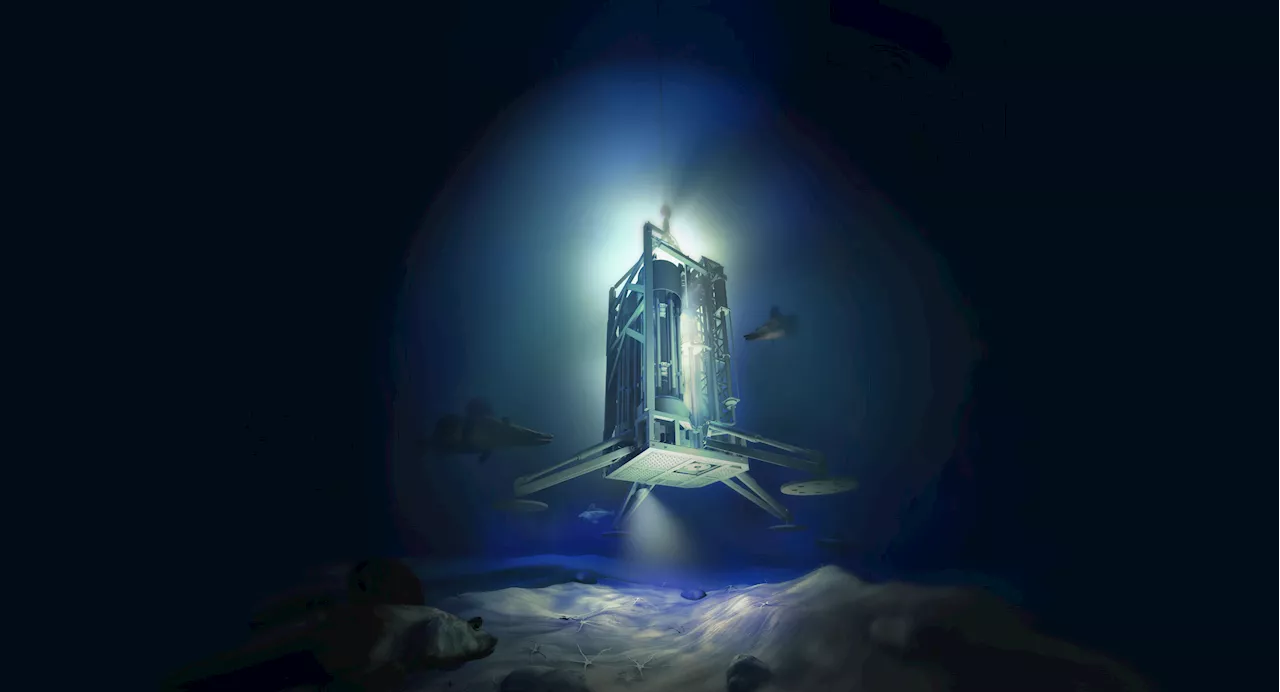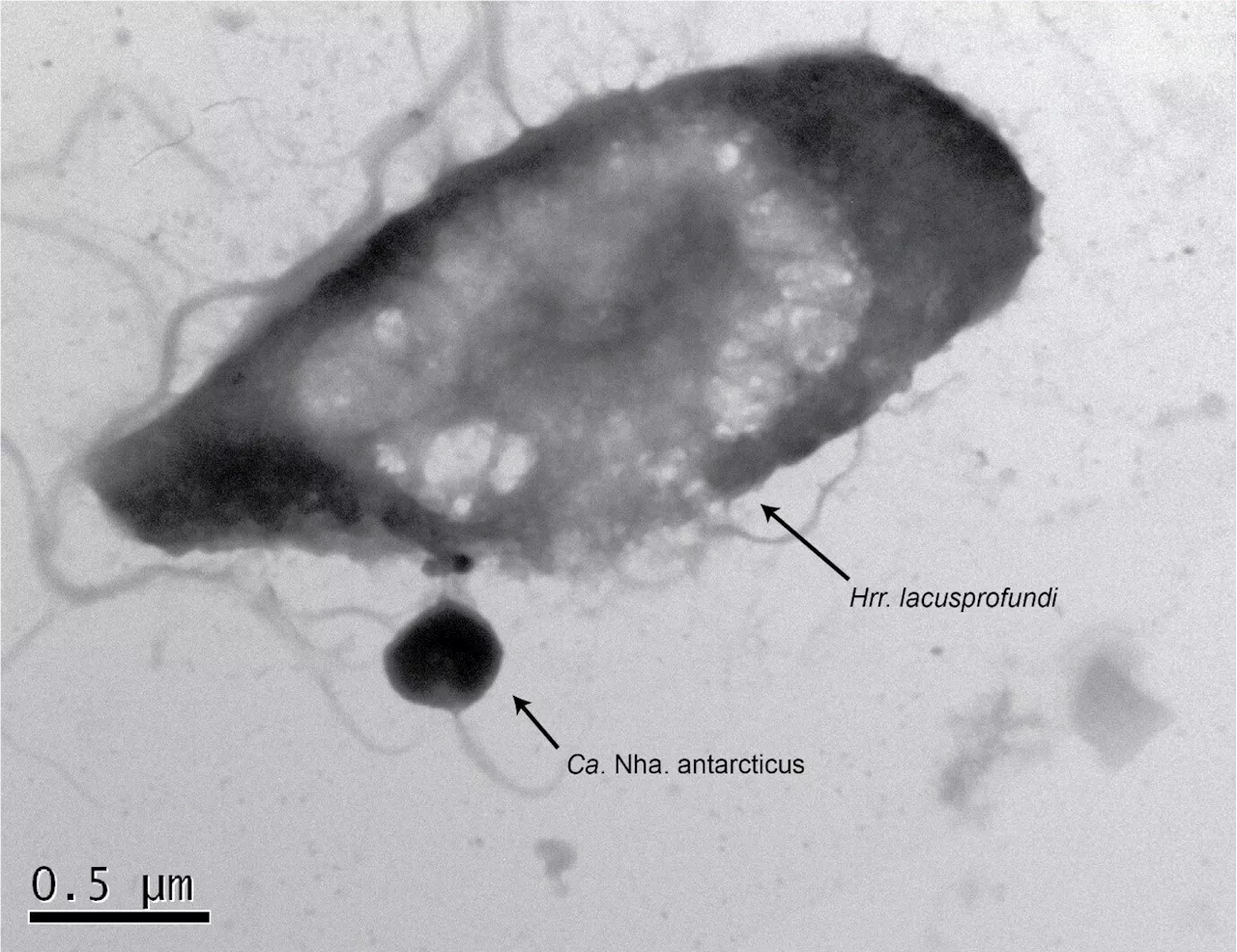In Antarctica there is a small lake, called Deep Lake, that is so salty it remains ice-free all year round despite temperatures as low as -20°C in winter. Archaea, a unique type of single-celled microorganism, thrive in this bitterly cold environment.
Ancient Antarctic microorganisms are aggressive predators retrieved 2 August 2024 from https://phys.org/news/2024-08-ancient-antarctic-microorganisms-aggressive-predators.html
This document is subject to copyright. Apart from any fair dealing for the purpose of private study or research, no part may be reproduced without the written permission. The content is provided for information purposes only.Big sharks equal big impact, but there's a big problem: Those most affected by fishing are most needed for ocean healthUse this form if you have come across a typo, inaccuracy or would like to send an edit request for the content on this page.
Your feedback is important to us. However, we do not guarantee individual replies due to the high volume of messages.to let the recipient know who sent the email. Neither your address nor the recipient's address will be used for any other purpose. The information you enter will appear in your e-mail message and is not retained by Phys.org in any form.Get weekly and/or daily updates delivered to your inbox.
Physics News Science News Technology News Physics Materials Nanotech Technology Science
United States Latest News, United States Headlines
Similar News:You can also read news stories similar to this one that we have collected from other news sources.
 Recovery of unique geological samples sheds light on formation of today's Antarctic ice sheetIn recent years, global warming has left its mark on the Antarctic ice sheets. The 'eternal' ice in Antarctica is melting faster than previously assumed, particularly in West Antarctica more than East Antarctica. The root for this could lie in its formation, as an international research team led by the Alfred Wegener Institute has now discovered.
Recovery of unique geological samples sheds light on formation of today's Antarctic ice sheetIn recent years, global warming has left its mark on the Antarctic ice sheets. The 'eternal' ice in Antarctica is melting faster than previously assumed, particularly in West Antarctica more than East Antarctica. The root for this could lie in its formation, as an international research team led by the Alfred Wegener Institute has now discovered.
Read more »
 The dawn of the Antarctic ice sheetsIn recent years global warming has left its mark on the Antarctic ice sheets. The 'eternal' ice in Antarctica is melting faster than previously assumed, particularly in West Antarctica more than East Antarctica.
The dawn of the Antarctic ice sheetsIn recent years global warming has left its mark on the Antarctic ice sheets. The 'eternal' ice in Antarctica is melting faster than previously assumed, particularly in West Antarctica more than East Antarctica.
Read more »
 Undetected Melting Threat: Scientists Discover New Antarctic Tipping PointScience, Space and Technology News 2024
Undetected Melting Threat: Scientists Discover New Antarctic Tipping PointScience, Space and Technology News 2024
Read more »
 Predator with toilet seat-shaped head ruled Antarctic swamps in the Ice AgeThis discovery offers significant insights into the changing world during the Permian period, approximately 300 million years ago.
Predator with toilet seat-shaped head ruled Antarctic swamps in the Ice AgeThis discovery offers significant insights into the changing world during the Permian period, approximately 300 million years ago.
Read more »
 Researchers use 1,000 historical photos to reconstruct Antarctic glaciers before a dramatic collapseIn March 2002, the Larsen B Ice Shelf collapsed catastrophically, breaking up an area about one-sixth the size of Tasmania.
Researchers use 1,000 historical photos to reconstruct Antarctic glaciers before a dramatic collapseIn March 2002, the Larsen B Ice Shelf collapsed catastrophically, breaking up an area about one-sixth the size of Tasmania.
Read more »
![]() Scientists Reconstruct Collapsed Antarctic Glaciers Using 1960s Aerial PhotosScientists have analyzed historical aerial photos from the 1960s to reconstruct glaciers that collapsed in Antarctica in 2002.
Scientists Reconstruct Collapsed Antarctic Glaciers Using 1960s Aerial PhotosScientists have analyzed historical aerial photos from the 1960s to reconstruct glaciers that collapsed in Antarctica in 2002.
Read more »
